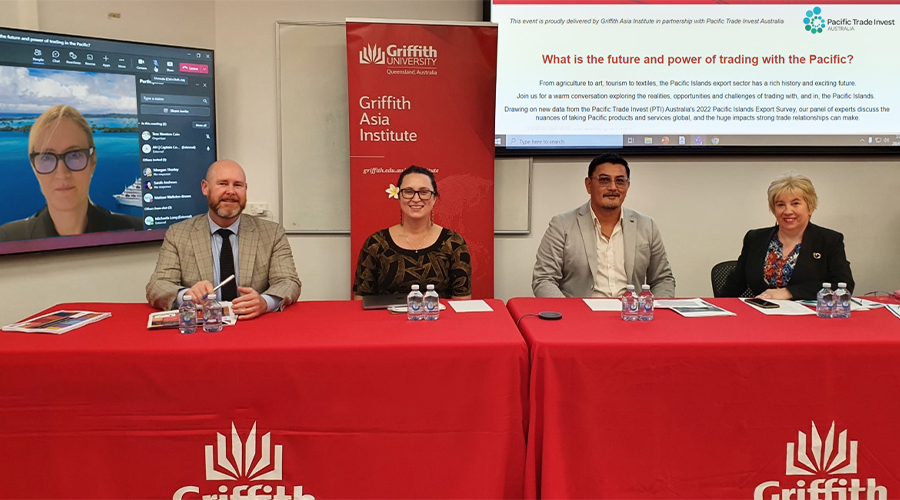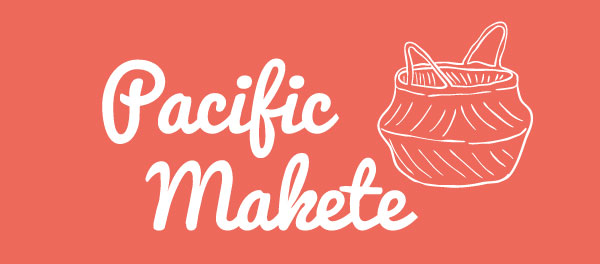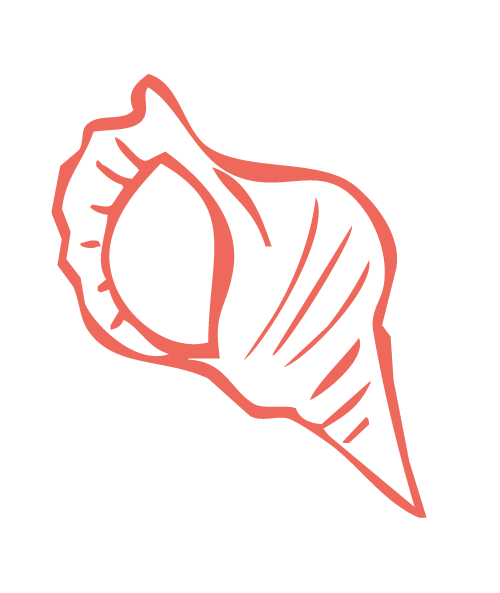Pacific exporters speak on state of industry

Pacific exporters recently gathered to speak on the realities, opportunities, and challenges of trading in the region.
The event was hosted by Griffith Asia Institute and Pacific Trade Invest Australia, with expert panelists being posed the question, ‘What is the future and power of trading with the Pacific?’
Expert panelists included Fipe Preuss, Samoan co-founder of Living KoKo, Zane Yoshida, founder and director of ASX-listed Fiji Kava, Allison Haworth West, CEO of Captain Cook Cruises Fiji and President of the Australia Fiji Business Council, and Caleb Jarvis, Trade and Investment Commissioner of PTI Australia.
Speaking on challenges within the current exporting ecosystem, Preuss noted the need for upskilling opportunities among Pacific-based entrepreneurs.
“I find that a huge frustration for a lot of our people back home, is the feeling that they have a product and they’re at the point of being export ready, but they don’t have the knowledge nor experience behind them as to how to export. I think that’s a huge point of frustration, and certainly an area in which there is much opportunity to enable our emerging Pacific exporters.”
Echoing this statement, Jarvis said PTI Australia’s digital upskilling portfolio sought to bridge this gap.
“Looking at the [PTI Australia Pacific Islands Export] survey and at our previous Pacific Business Monitor surveys, we can see that there definitely is an appetite to do more online, and the first part of enabling that is equipping Pacific Island businesses with the knowledge to do so. Over the last two and a half years since the onset of COVID, PTI Australia has been rolling out a number of programs in this respect, and if there was one positive to come from COVID for us, it’s that we saw that the Pacific really engaged digitally in a way that they hadn’t before.
“We’ve been able to use technology to upskill businesses and individuals across the region, in digital marketing and digital tourism, while also readying them for digital trade and eCommerce. Throughout this process, we’ve continually been so impressed with the huge numbers of people that have signed up.”
When asked on trends budding within the Pacific’s engagement with foreign markets, Haworth West noted the emergence of the ‘authentic’ experience.
“Globally we are noticing that consumers are seeking out authentic and real experiences. This is directly flowing through to what they buy, further creating an amplification of the destination and the experiences they have had.
“We have noticed that every tourist, every traveller, that comes back from the Pacific, soon becomes an ambassador for the destination and gains an affinity for the local people. This increases the demand for local products, whether manufactured on a larger scale, or on an artisanal one.”
Yoshida supported this statement, saying that since international borders opened, locally manufactured Fiji Kava had seen an uptick in sales. He added this was also driven by demand from the Pacific diaspora community in the Australian market.
“We sell many of our products through the tourist stores, duty free out of Fiji, and we’ve seen a strong pull through those channels since the reopening of the borders post-COVID which is exciting to see.”
“Referencing the [PTI Australia] Pacific Island Export survey, where we saw that the confidence of exporters had increased since the reopening of the borders, [I think] innovation through ecommerce platforms has also allowed for increased market access to Pacific Islanders living in Australia and beyond, allowing them to pull products from those various channels.”
In PTI Australia’s recently published Pacific Islands Export Survey 2022, 46 per cent of Pacific exporters called for financial offset to support high freights costs. Speaking on this, Jarvis reaffirmed the strong need for government and private sector support during SME recovery.
“When we talk about high freight costs, we must recognise that this isn’t just a Pacific Islands issue. This is a global issue, albeit one that is acute in the Pacific. For some time now, PTI Australia has run our Freight Assistance Package and it’s a financial grant that came about because of the feedback we got through both our Export Survey and directly from the exporters that we work with.
“While this is not normally the work we do, the voice was so loud that we had to react to that and provide more tangible and practical support. I’ve been around for a little while and that’s probably the most successful thing that we’ve ever done at PTI Australia. It was the right intervention at the right time.
“On the whole, I think that there is a general increasing need for both governments and private sector to support SMEs from the Pacific better than has been done in the past. The big elephant in the room is that if freight rates and other input costs don’t come under control, then many Pacific Island products are going to struggle to be competitive in international market.”

